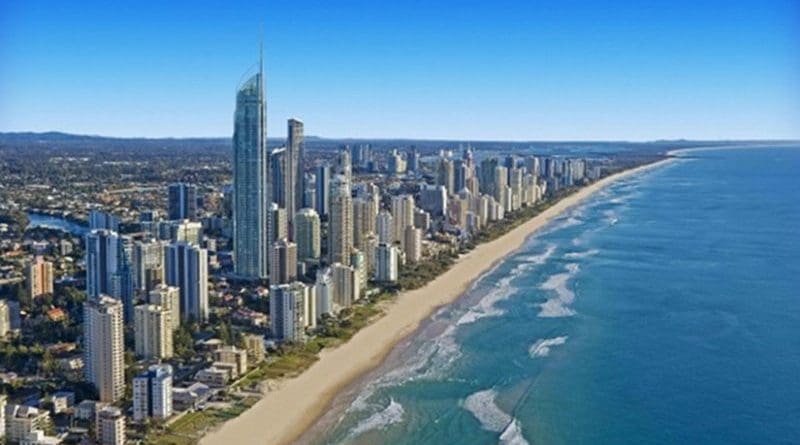Amid Virus Fears, Dubai Leads By Example In Preparing For Expo 2020 – OpEd
By Lisa Moore*
The global financial impact of the spread of the Coronavirus has been all too palpable. Markets in Asia, Europe continue to open with sharp declines as investors try to cope with the relentless effects the epidemic has caused.
The effects of the virus on the global economy are in a way unique. As analysts have pointed out, because of the virus’s epicenter, China, coronavirus has triggered both a demand and a supply shock to markets around the world. Supply shocks are notoriously unnerving to investors, who see them as signs that regardless of the demand for a product, there may be no way to fulfill them.
The drop in market vitality has also been felt by pretty much all Gulf states, as markets in the region crashed as a result of the virus. The hit to Gulf countries has been exacerbated by a sudden drop in oil prices as well.
In the wake of this instability, market observers have been urging proactive measures to combat the economic downturn. The United States Federal Reserve took the extremely unusual step recently by announcing its intention to lower the benchmark borrowing rate by three-quarters of a point this month. Many high ranking officials of the US central bank, including several regional presidents, have stated that the market is not wrong to expect more central bank help if the coronavirus situation worsens.
Luckily, some important global events have come at an opportune time.
The Dubai Expo 2020 is scheduled to take place in October and will last through April of 2021.
The city was chosen to host this year’s World Expo by the Paris based Bureau International des Expositions back in 2013. Already 138 nations have announced their participation.
The World Expo has long been a platform to spur economic growth and international business cooperation. For both UAE and broader global economy, the Dubai Expo 2020 is sure to provide a rebound from the economic effects of the coronavirus given it is considered to be one of the largest global events for economic impact. Analysts point to domestic growth by generating 1 million jobs, billions of dollars in the investment of public and private infrastructure, and a boost of approximately 25 million in overnight visitors. This is in addition to the tens of millions already arriving annually in Dubai, which still ranks at the top of global international travel hubs. In all, Dubai is set to generate $51 billion from the event.
With these numbers in mind, analysts’ forecasts make sense that the UAE is in a comfortable position globally to rebound from the current economic slouch. Simply put, Dubai will be able to leverage its gains from the event to help its economy recover and keep its key industries moving. Importantly for the UAE, stringent health procedures have limited the virus’ local spread and have resulted in a relatively low-risk infection environment. As examples, virus testing is covered under the government’s healthcare program, strict quarantine measures are in place, and schools and government institutions are all operating online instead. Indeed, under 100 cases have been reported in the Emirates despite huge daily air passenger and tourist numbers. If the infection rate continues to flatten, the UAE will have no issues hosting the global event.
More importantly, however, is Expo 2020’s global economic impact potential.
At the regional level, market observers have projected the Expo to be a trigger for economic cooperation among Middle Eastern countries. This collaboration is expected to express itself in a multitude of sectors including alternative energy following the commencement of construction on the Barakah Nuclear Power Plant in Abu Dhabi, the first of its kind in the Arab world – a project expected to attract the involvement of several other partner nations.
World expos have long been known to be an important driver of economic development on an international scale. It was only last year however that a team of researchers headed by Oxford economists created a model to measure the impacts in a precise way. According to the team’s analysis, such expos generate $81 billion in direct GDP globally, with the total economic impact reaching $325 billion. This ranks the exposition sector as the 56th largest economy in the entire world. The findings on just how much positive impact is generated by the expo industry are important to consider at a time when instability has taken such a toll on markets this year.
The effects of Dubai 2020 are expected to ripple across the world in similar ways.
The event is expected to be a major platform for technology innovation and the sharing of that technology. This clear goal of the Expo was put forth in the motto: “Connecting Minds, Creating the Future.” More than aspirational, even minor expos in recent years have yielded significant technological innovation.
Honing in specifically on the recent market declines, expos have also served as platforms for business leaders to collaborate on solutions to pressing international issues.
With all this potential in mind, world leaders should already now begin to strategize on how to take advantage of Dubai 2020. The coming together of global partners in the UAE this October is likely to function as a rebound from the market effects of coronavirus.
*Lisa Moore is New York-based freelance journalist writing on global political affairs. She also acts as an external adviser to news corporations assisting with their journalism endeavors in regards to political and current affairs.

